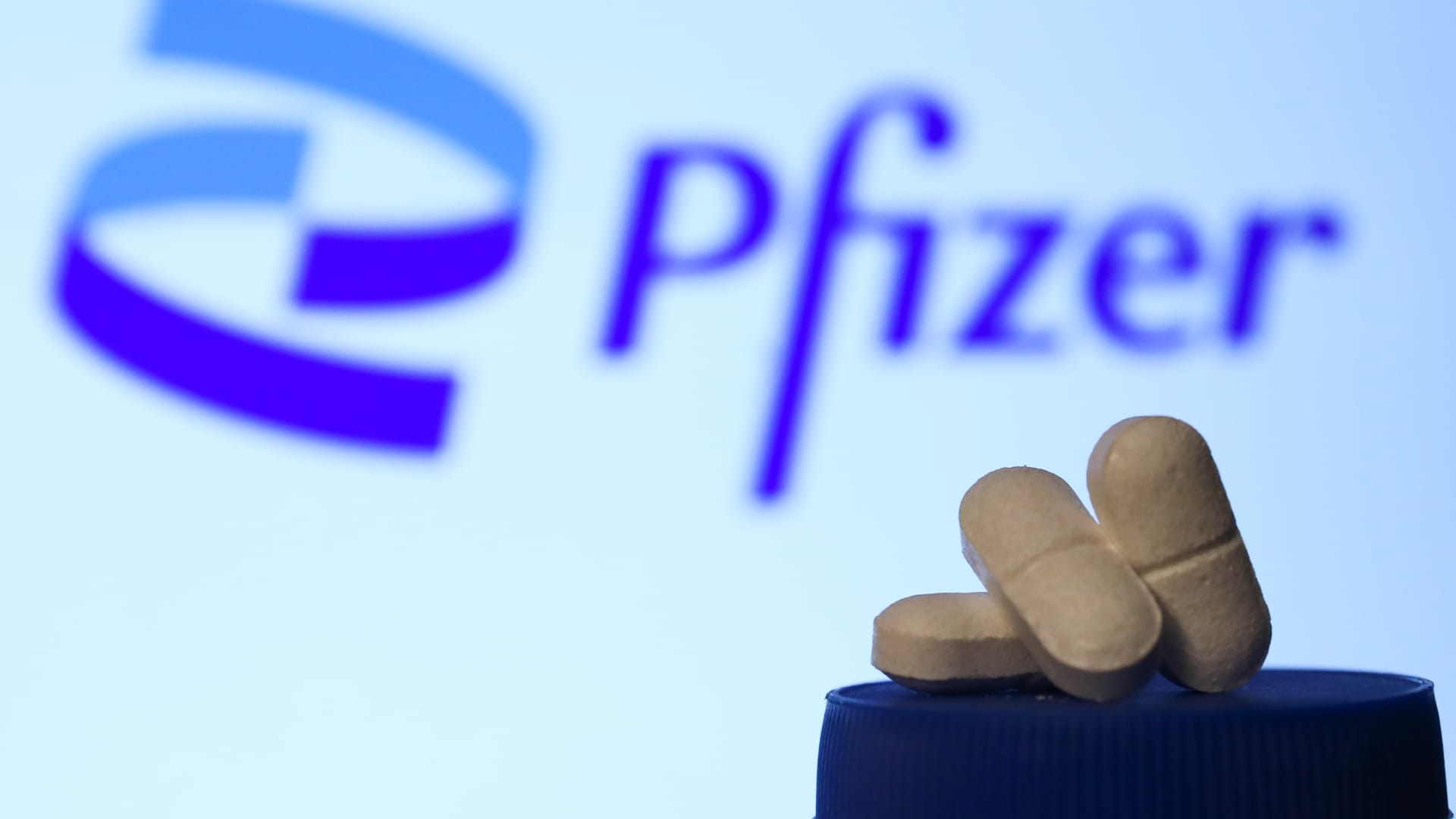
Jakub Porzycki | Nurphoto | Getty Images
Pfizer on Wednesday reported first-quarter revenue that beat expectations and hiked its full-year profit outlook, benefitting from its broad cost-cutting program and strong sales of its non-Covid products.
The company now expects to book adjusted earnings of $2.15 to $2.35 per share for the fiscal year, up from its prior guidance of $2.05 to $2.25 per share.
Pfizer reiterated its previous revenue forecast of $58.5 billion and $61.5 billion, which it first outlined in mid-December.
The pharmaceutical giant said its new profit guidance accounts for its “confidence” in its business and its ability to slash costs. Pfizer said it is on track to deliver at least $4 billion in savings by the end of the year.
The results come as Pfizer tries to regain its footing after the rapid decline of its Covid business. Demand for those products has plunged to new lows, and they transitioned to the commercial market in the U.S. last year. As revenue suffers, the company is trying to improve its bottom line and shore up investor confidence through its cost cuts and a renewed focus on treating cancer following its $43 billion acquisition of Seagen last year.
Here’s what Pfizer reported for the first quarter compared to what Wall Street was expecting, based on a survey of analysts by LSEG:
- Earnings per share: 82 cents adjusted, it was not immediately clear if it is comparable to the 52 cents expected.
- Revenue: $14.88 billion vs. $14.01 billion expected.
Pfizer recorded first-quarter revenue of $14.88 billion, down 20% from the same period a year ago, primarily due to the plunge in sales of its Covid products.
For the first quarter, Pfizer booked a net income of $3.12 billion, or 55 cents per share. That compares to a net income of $5.54 billion, or 97 cents per share, during the same period a year ago.
Excluding certain items, the company posted earnings per share of 82 cents for the quarter.
Notably, the company said its adjusted and non-adjusted profit got an 11 cents per share boost from a $771 million final adjustment to the estimated $3.5 billion revenue reversal recorded in the fourth quarter, reflecting 5.1 million courses of its antiviral Covid pill Paxlovid returned by the U.S. government by Feb. 29.
Shares of Pfizer fell roughly 40% in 2023 as demand for Covid treatment Paxlovid and its vaccine against the virus dried up, causing the company to dramatically slash its full-year revenue forecast and record multibillion-dollar charges related to inventory write-offs. Pfizer also disappointed the street with an underwhelming launch of a new RSV shot and a twice-daily weight loss pill that fell short in clinical trials.







